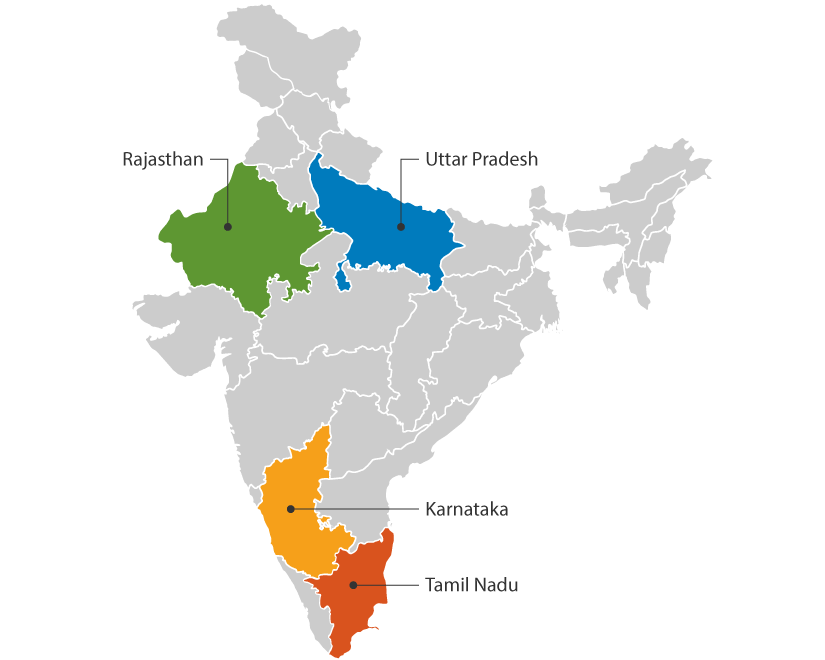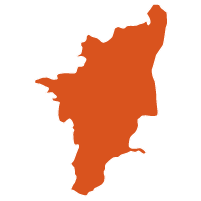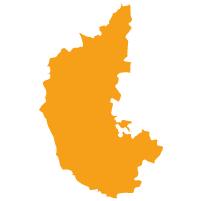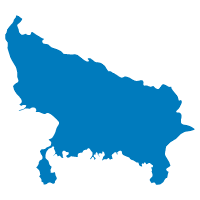Supporting India's States With Renewable Energy Integration
NREL partners directly with states in India to evaluate strategies for integrating renewable energy into India's power system.
The Government of India made a commitment to transition to clean energy in its power sector through several nationwide targets, such as reaching 450 GW of renewable energy by 2030 and a nationally determined contribution commitment of 40% renewable electricity capacity by 2030. India's states will play a key role in this transition. Advancing the data, tools, and methods used to plan and manage this power sector transformation is critical to reaching targets and creating an environment for further ambitions across the energy sector.
Program Objectives
Given the position of India's states in managing the electric power grid, this transformation will require a leading role from individual state utility companies and coordination among them. NREL supports these states and organizations by addressing renewable energy integration through several key strategies:
In addition to partnering with the state utilities, NREL partners with local civil society organizations to sustain the impact of these programs. By enhancing capabilities in planning and managing the growth in renewables, this program helps state utility companies and other energy stakeholders in India make data-driven, cost-effective investments in procuring resources and modernizing their power system to meet multiple objectives.
Where Is NREL Working?

State Projects

Tamil-Nadu
NREL is using the open-access model ReEDS to support optimal bulk power system planning in Tamil Nadu, one of India's pioneering renewable energy states, by evaluating several clean energy pathways. This work is helping decision makers understand how policies or other sector trends might impact the needs of the state over the next several decades by bringing together stakeholders to prioritize questions and share key results.
NREL also worked closely with Tamil Nadu's distribution company (DISCOM) to build a custom software tool, EMeRGE, that allows engineers to have better visibility on the impacts of rooftop solar or other distributed energy resources (DERs). By enabling a greater understanding of the impacts of DERs, Tamil Nadu can take aggressive steps to modernizing its grid while continuing to increase reliability. Both tools allow Tamil Nadu a better understanding of the impact of renewable energy on their system and will lead to an acceleration of the growth of these clean and low-cost sources of energy.
Publications
Distributed Solar in Tamil Nadu, NREL Fact Sheet (2021)
Long-Term Planning for the Tamil Nadu Power System, NREL Fact Sheet (2021)
Pathways for Tamil Nadu's Electric Power Sector: 2020–2030, NREL Technical Report (2021)
An Analysis Framework for Distribution Network DER Integration in India: Distributed Solar for Tamil Nadu, NREL Technical Report (2021)

Karnataka
NREL is convening a stakeholder driven Modeling Working Group to coordinate with Karnataka officials and power system engineers on bulk power system planning studies and the identification of unique challenges and analysis needs associated with the changing power sector in Karnataka. Developing state-of-the-art planning models and methods specific to Karnataka will enable continued ambition for the state renewable energy sector and more closely integrate renewable energy growth with the power sector growth. Flexible tools and methods will also ease the integration of other sector transformations into power sector planning, such as transportation and buildings electrification.
Publications
Role of Renewable Energy, Storage, and Demand Response in Karnataka’s Power Sector Future, NREL Technical Report (2022)
Rajasthan
NREL is working with the Rocky Mountain Institute (RMI) to support the State of Rajasthan Energy Department in medium- and long-term power sector planning. With guidance from a broad array of power sector stakeholders, NREL will be using ReEDS to understand how different policies and technology costs impact system requirements. Additionally, in close coordination with RMI, NREL will forecast the potential for rooftop PV in the state using dGen. This data will be combined with demand forecasts from RMI and fed into ReEDS to provide insights on how distributed generation, and other potential changes to system demand such as electric vehicle growth, could impact the generation requirements of the state in the coming years.
Publications
Opportunities for Renewable Energy, Storage, Vehicle Electrification, and Demand Response in Rajasthan’s Power Sector, NREL Technical Report (2022)

Uttar Pradesh
NREL collaborated with RMI and the Uttar Pradesh New and Renewable Energy Development Agency on long-term power system planning. NREL and partners adapted the ReEDS India model to focus on Uttar Pradesh and model its policies and plans for in-state solar PV, pumped storage hydropower, and green hydrogen. Through a series of in-person and virtual stakeholder meetings, the team estimated the effect of in-state green hydrogen production on electricity demand and studied how Uttar Pradesh could meet this demand through in-state renewables, storage, and imports. NREL also assessed the air quality impacts of the different power sector scenarios.
Publications
Impacts of Renewable Energy and Green Hydrogen Policies on Uttar Pradesh's Power Sector Future, NREL Technical Report (2024)
Impacts of Renewable Energy and Green Hydrogen Policies on Uttar Pradesh’s Power Sector Future: Additional Modeling Scenarios to Explore Hydrogen Flexibility, NREL Presentation (2024)
Trainings and Tutorials
The Renewable Energy Integration India program develops self-driven tutorials and trainings on power system modeling tools as well as peer-learning events:
- The India Modeling Spotlight Series showcases publicly available power system modeling tools.
- The Peer2Peer: India Power Series is a virtual forum to support discussion and knowledge sharing related to India's clean energy transition.
- The ReEDS India Online Tool tutorial provides an overview and step-by-step instructions for using the ReEDS India online tool. Developed and maintained by the National Renewable Energy Laboratory, ReEDS India is a free-to-use capacity expansion modeling tool for the Indian power system.
Publications
Planning Roadmap for Distributed Energy Resources Integration in India: Industry Best Practices and Resource Guide, NREL Technical Report (2024)
Opportunities for Hybrid Wind and Solar PV Plants in India, NREL Fact Sheet (2022)
How To Conduct a Long-Term Planning Study: Guidelines for Power System Planners, NREL Fact Sheet (2021)
Power System Planning: Advancements in Capacity Expansion Modeling, NREL Fact Sheet (2021)
Road Map for Advanced Power System Planning in Indian States With High Renewable Energy, NREL Fact Sheet (2021)
Least-Cost Pathways for India's Electric Power Sector, NREL Technical Report (2020)
India 2030 Wind and Solar Integration Study: Interim Report, NREL Technical Report (2019)
Contact
Share
Last Updated Nov. 3, 2025
